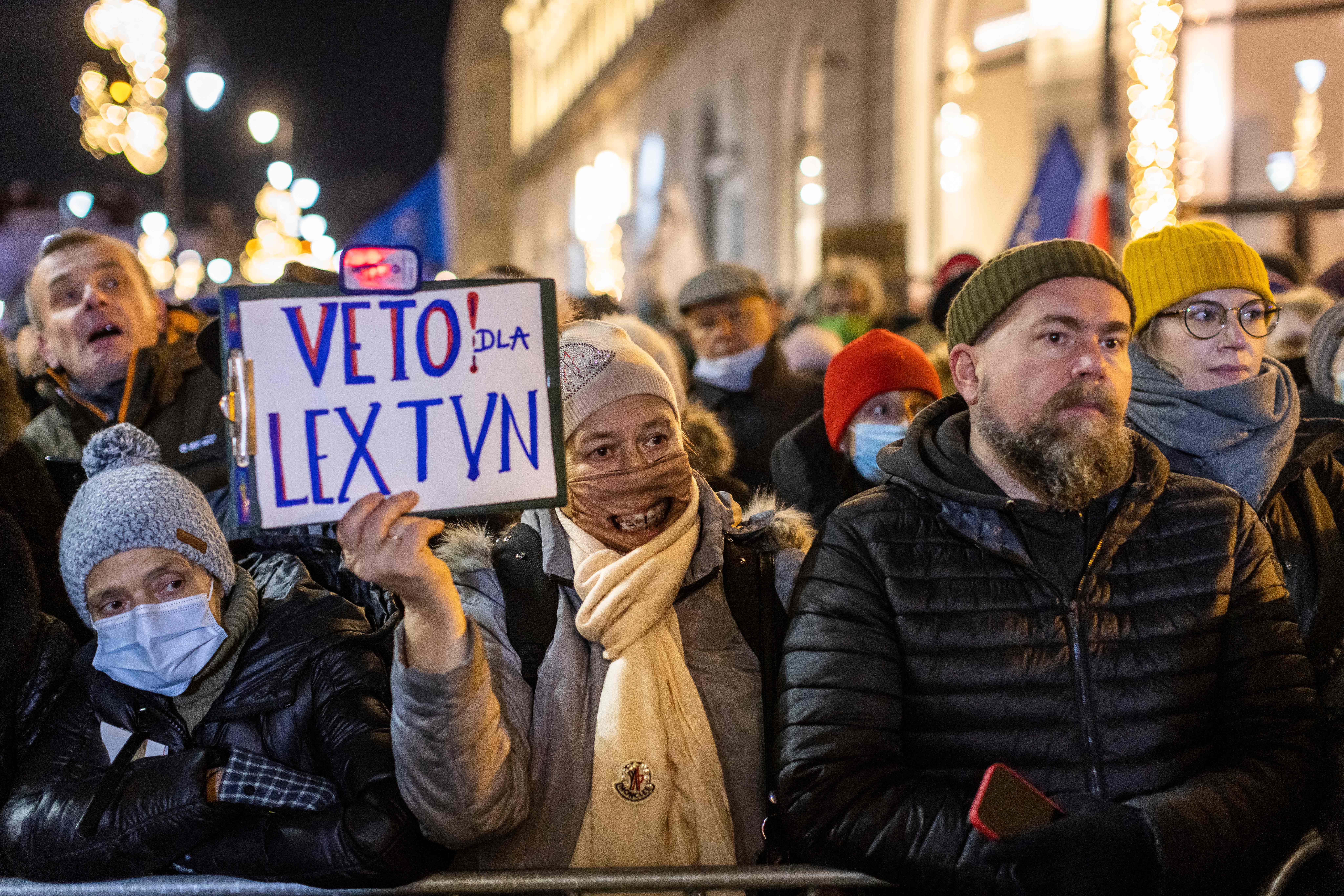Polish president vetoes media law that targeted US broadcasting giant
The bill would have forced Discovery Inc to sell holdings in Polish broadcaster TVN

Your support helps us to tell the story
From reproductive rights to climate change to Big Tech, The Independent is on the ground when the story is developing. Whether it's investigating the financials of Elon Musk's pro-Trump PAC or producing our latest documentary, 'The A Word', which shines a light on the American women fighting for reproductive rights, we know how important it is to parse out the facts from the messaging.
At such a critical moment in US history, we need reporters on the ground. Your donation allows us to keep sending journalists to speak to both sides of the story.
The Independent is trusted by Americans across the entire political spectrum. And unlike many other quality news outlets, we choose not to lock Americans out of our reporting and analysis with paywalls. We believe quality journalism should be available to everyone, paid for by those who can afford it.
Your support makes all the difference.Poland’s President Andrzej Duda said he has vetoed a controversial media bill that had raised concerns about freedom of speech and Warsaw’s relationship with key ally the United States.
Unexpectedly rushed through parliament this month, the legislation would have tightened rules around foreign ownership of media, specifically affecting the ability of Polish broadcaster TVN, owned by US media company Discovery Inc, to operate.
For many in Poland, it was a victory for freedom of speech and media independence in a country where democratic norms are being challenged by the nationalist government.
President Duda noted that the bill was unpopular with many Poles and would have dealt a blow to Poland’s reputation as a place to do business, but did not rule out the possibility of it being reintroduced in the future.
"I believe that generally limiting the possibility of holding shares or stocks in media companies is sensible when it comes to foreign capital ... I share the opinion that it should be introduced in Poland, but for the future," Mr Duda said.
"The bill and its amendments concern entities which are already present in the market ... There is also the issue of media pluralism, of freedom of speech. When taking my decision, I took this element into serious consideration."
The United States had urged Mr Duda to use his veto. The US charge d’affaires in Warsaw, Bix Aliu, thanked him on Twitter “ ... for leadership and commitment to common democratic values and for protecting the investment climate in Poland”.
The legislation would have prevented any non-European entity from owning more than a 49 per cent stake in television or radio broadcasters in Poland.
Its practical effect would have targeted only Discovery, forcing the owner of Poland’s largest private television network, TVN, to sell the majority or even all of its Polish holdings. Discovery had threatened to sue Poland in an international arbitration court, saying it would fight for its investment.
“This is a victory for the Polish people,” Discovery said in a statement on Monday. “We commend the president for doing the right thing and standing up for the democratic values of a free press and the rule of law.”
Duda said the bill would have violated the provisions of a Polish-US economic treaty signed in the 1990s, and Poland could have faced possible penalties reaching in the billions of dollars if he had signed it.
Poland’s ruling nationalist Law and Justice (PiS) party has long said that foreign media groups have too much power in the country and distort public debate.
PiS spokeswoman Anita Czerwinska told state-run news agency PAP the party was “disappointed” by the decision.
“In our opinion, the media law requires clarification so that the law is applied in accordance with the same practice as in other countries,” she was quoted as saying.
Parliament could vote to overturn the president’s veto, but PiS does not have the required qualified majority of votes.
Critics say the government’s moves against foreign media groups are part of an increasingly authoritarian agenda that has put Warsaw at loggerheads with the European Union.
Mass nationwide protests were recently held in support of the station and of freedom of speech more broadly.
Reuters / AP



Join our commenting forum
Join thought-provoking conversations, follow other Independent readers and see their replies
Comments